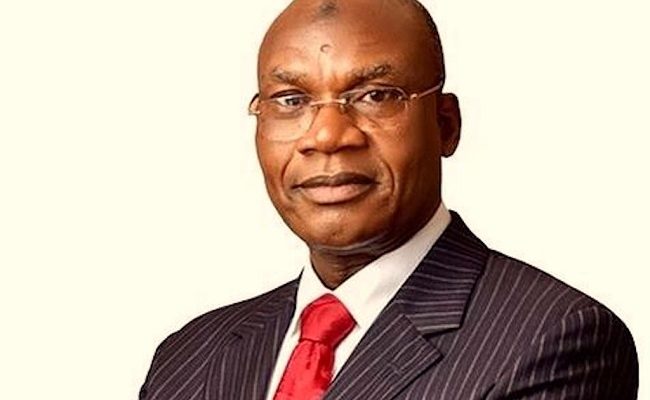
THE Federal Government has challenged universities and other tertiary institutions in the country to focus on problem-solving research that can enhance national development.
Minister of Education, Professor Tahir Mamman, gave the charge during inauguration of two standing committees for Tertiary Education Trust Fund (TETFund).

They are the reconstituted TETFund National Research Fund Screening and Monitoring Committee (NRFS&MC) and the Technical Advisory Group (TAG) on Higher Education Book Development.
The 55-member reconstituted TETFund National Research Fund Screening and Monitoring Committee has Professor Hayward Mafuyai as the chairman, while the 48-member reconstituted Technical Advisory Group has Prof. Albert Abegunde as its chairman.
Mamman noted that all forms of economic development in the modern era depend on increased productivity arising from purposeful and problem-solving research.
He emphasised that Research and Development (R&D) is a key prerequisite for accelerated national development and global competitiveness.
He observed that this is only possible with adequate and sustainable funding for research and development, adding that it is only by promoting applied research that academia could feed the industry to generate employment and facilitate economic growth.
He said it is against this backdrop that the National Research Fund (NRF) was established in 2011 to help resuscitate research activities in the nation’s public tertiary institutions.
The minister explained that the NRF committee is supporting the Fund to ensure effective administration of the grants, acknowledging that the NRF intervention has been a lifeline for reinvigoration of research activities in our tertiary institutions.
“The Fund has also been making concerted efforts to identify more innovative ways of deploying resources to fund research programmes and projects with a view to deepen the institutionalisation of R&D to tackle national challenges,” he said.
Mamman revealed that from the inception of NRF intervention in 2011, the Fund has awarded 912 grants to researchers from public tertiary institutions at the cost of over N24 billion.
He lauded President Bola Tinubu, for approving the sum of N5 billion for NRF and N8 billion for provision of Central Multipurpose Laboratories in some universities across the country among numerous other groundbreaking projects under the 2024 intervention budget.
He said: “This is indeed a strong demonstration of His Excellency’s commitment to the promotion of research activities in our tertiary institutions to support national development.
“Besides, TETFund has continued to provide sponsorship for Institution-Based Research (IBR) to facilitate the revival of quality research among the lecturers in Tertiary Institutions and assist them to build capacity for higher research.
“To strengthen this intervention and deepen its impact, I have approved an upward review of the funding ceiling per IBR project from N2 million to N5 million for Science-Based Research and N4 million for Humanities and Social Science Research in line with current realities.”
The minister described as worrisome the quality of most academic publications in the country which he noted leaves much to be desired.
He lamented that overtime, Nigeria’s tertiary education institutions became dependent on books published outside the country with the attendant consequences of the pressure on the demand for foreign exchange.
“It is therefore expected that nurturing the culture of quality authorship and the production of indigenous books will not only ensure the availability of relevant books in the diverse subject areas that take cognizance of our local environment and sensitivities, it will also safeguard national pride and reduce the demand for foreign textbooks.
“In response to this challenge, TETFund initiated the Higher Education Book Development Project for intervention in the three key areas of publication of academic books and the conversion of high-quality theses into books; support for Professional Association Journals; and establishment as well as sustainability of Academic Publishing Centres (APCs).
“The TAG is supporting the Fund for effective implementation of the intervention,” he stated.
The membership of the two Committees were drawn from Nigerian Tertiary Education Institutions (Universities, Polytechnics, Colleges of Education), representatives of the academic staff unions of these institutions, representatives of relevant regulatory agencies (National Universities Commission – NUC, the National Board for Technical Education – NBTE, and the National Commission for Colleges of Education – NCCE).
The Terms of Reference for the NRF Committee are to: pre-qualify applications for research grants from academics in beneficiary institutions to ensure that they are in compliance with the approved templates for accessing the TETFund NRF Grant among others.
The TAG on the other hand is charged with the following responsibilities of screening proposals on manuscripts for development into Academic Textbooks and advising TETFund on fundable Manuscripts among others.
The Minister noted that considering the pivotal role of committees to the success of these two key intervention programmes, the selection of members has been done in such a manner as to reflect diverse expertise, experience and standing in the academic community.
“The aim is to build a team with a common vision and passion for stimulating the pursuit of excellence and engendering a culture of competitive research and book publication as a catalyst for national development,” he said.
The executive secretary of TETFund, Sonny Echono, on his part, noted that in 2020, the intervention agency carried out a review of the three thematic areas of the NRF research spectrum and incorporated emerging issues of national developmental challenges requiring innovative solutions.
He, therefore, charged the leaderships and members of the two committees to sustain and enhance the credibility of the process to guarantee the integrity of the intervention programmes.
He also warned them to bear in mind that the government would not hesitate to delist members found wanting in any way likely to bring the integrity of the committees into question.
Read Also: NNPC, TotalEnergies to invest $550 million in gas projects in Nigeria — Report







